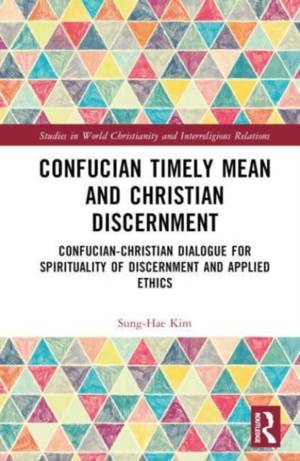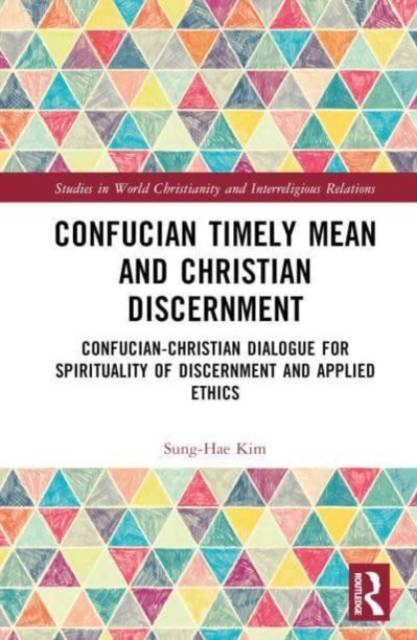
- Afhalen na 1 uur in een winkel met voorraad
- Gratis thuislevering in België vanaf € 30
- Ruim aanbod met 7 miljoen producten
- Afhalen na 1 uur in een winkel met voorraad
- Gratis thuislevering in België vanaf € 30
- Ruim aanbod met 7 miljoen producten
Zoeken
Confucian Timely Mean and Christian Discernment
Confucian-Christian Dialogue for Spirituality of Discernment and Applied Ethics
Sung-Hae Kim
€ 274,95
+ 549 punten
Omschrijving
This book explores the notion of the timely mean, a virtue established in the Confucian tradition, in dialogue with the Christian understanding of discernment, especially as used in spirituality studies. It considers the historical development of these concepts, addressing the early encounter between Confucianism and Christianity as demonstrated in China and Korea and the fusion of the two perspectives in the nineteenth century. The chapters examine some of the major scholars and texts that have influenced both theory and practice, providing insight through a comparison of representative figures from each tradition. The author contends that bringing the Confucian 'timely mean' into conversation with Christian 'discernment' reveals that the immense riches accumulated within each tradition can mutually enhance one another. The book reflects on the possibility of a viable process for ethical and spiritual discernment that is highly relevant for our global age. It is valuable reading for scholars and students of both Confucianism and Christian theology as well as of applied ethics, particularly those interested in comparative spirituality and interreligious relations.
Specificaties
Betrokkenen
- Auteur(s):
- Uitgeverij:
Inhoud
- Aantal bladzijden:
- 234
- Taal:
- Engels
- Reeks:
Eigenschappen
- Productcode (EAN):
- 9781032459233
- Verschijningsdatum:
- 20/10/2023
- Uitvoering:
- Hardcover
- Formaat:
- Genaaid
- Afmetingen:
- 156 mm x 234 mm
- Gewicht:
- 521 g

Alleen bij Standaard Boekhandel
+ 549 punten op je klantenkaart van Standaard Boekhandel
Beoordelingen
We publiceren alleen reviews die voldoen aan de voorwaarden voor reviews. Bekijk onze voorwaarden voor reviews.











